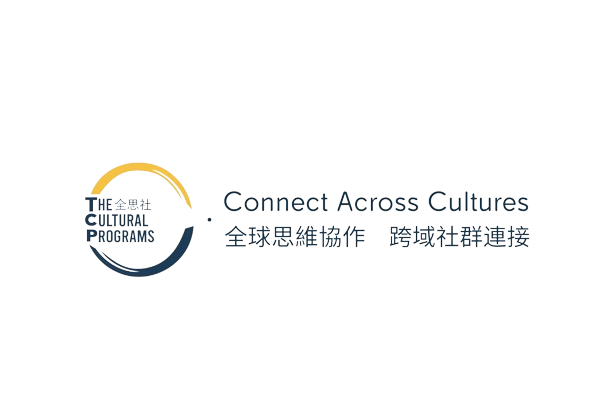
The Unsung Heroes: From Olympics Podiums to Boardrooms
The Unsung Heroes: From Olympics Podiums to Boardrooms https://tcpgrowth.com/wp-content/uploads/2024/08/1723123875461-1024x550.png 1024 550 Ray Yuen Ray Yuen https://secure.gravatar.com/avatar/ca877dadc931d1f0186313170e8aa1557197a2b620fabfb04e4dc7adc1023789?s=96&d=mm&r=g- Ray Yuen
- no comments
As the world shines the spotlight on Paris for the 2024 Olympic Games, we witness the culmination of years of dedication, sacrifice, and relentless pursuit of excellence by athletes worldwide. China’s national team has already scooped nearly 40 medals at the time of writing this article. The triumphant stories of HK athletes like Vivian Kong, Cheung Ka Long, and Siobhan Haughey are also uplifting. All the other participating athletes worldwide who devoted as much effort as the winning medalist also deserve applause and admiration.
While athletes bask in the glory of their achievements, the pivotal role of their coaches and other supporting team members often goes unnoticed. These unsung heroes, notably the coaches, motivate the athletes tirelessly behind the scenes, shaping not just athletic prowess but also the character and resilience of their charges.
The Impact of Olympic Coaches: Stories from Paris 2024
The Paris Olympics 2024 has already displayed the profound impact of coaches on athletic success. Take, for instance, the story of Gabrielle Thomas, the American sprinter who ranked no. 2 in the world position of Women’s 200 meters for almost 60weeks before the Olympics. Her coach, Tonja Buford-Bailey, a former Olympic bronze medalist, has been instrumental in Thomas’s journey. Buford-Bailey’s coaching approach, which combines technical expertise with a deep understanding of the psychological aspects of sprinting, has been credited for Thomas’s remarkable improvement over the past two years. This resulted in Thomas winning the gold medal in the women’s 200 meter in the Paris Olympics 2024.
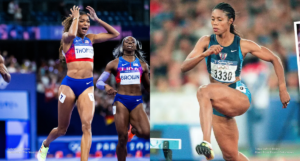
In the pool, Adam Peaty, a three-time Olympic champion and the first British swimmer to keep a gold title in two Olympics in a row, triumphantly returns to form in Paris after a challenging period, attributed mainly to his coach, Melanie Marshall, who had already been named the BSCA British Swim Coach of the Year for the third-straight time back in 2016 given her remarkable coaching endeavor with Peaty. Marshall’s innovative training techniques and unwavering support helped Peaty overcome mental health struggles and reclaim his position as one of the world’s premier breaststrokers despite their occasional fiery ways of communication. In an interview, Peaty once revealed his trust and reliance on his coach: ” I’m always going to need Mel(anie). Only she’ll know how hard it’s been for me to come back.”
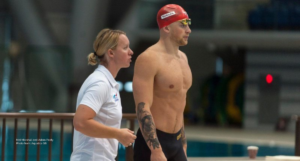
In the vibrant tapestry of Chinese sports, where talent and excellence interweave, Lang Ping is an iconic figure on the volleyball court. She etched her name into history by achieving a rare distinction: the first individual in volleyball to ascend the podium as both a player and a coach, claiming Olympic gold. Her story immortalized in the commercial film ‘Leap,’ directed by Peter Chan and featuring the luminous Gong Li, traces a path of triumph and turbulence. From her days as a world-class volleyball player—aptly nicknamed the ‘Iron Hammer’—to her transformation into an emblematic coach for the legendary Chinese national women’s volleyball team, Lang Ping embodies resilience, dedication, and the indomitable spirit of sport.
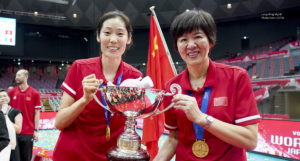
![]()
World-Class Sports Coaching vs. Master Executive Coaching: A Comparative Analysis
While world-class sports coaching and master executive coaching operate in different arenas, they share many commonalities in developing high-performance individuals and teams. Similarities between these two types of coaches include:
1. Goal-oriented approach
2. Focus on performance improvement
3. Emphasis on mental toughness and resilience
4. Importance of clear communication
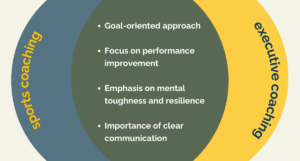
![]()
Nonetheless, one can find the differences between sports and executive coaching in the following table:
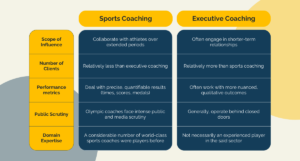
Despite these differences, both types of coaches share a fundamental goal: to unlock human potential and drive exceptional performance.
Applying Sports Coaching Principles to Executive Coaching
The Art of Influence
Olympic coaches excel in the art of influence, a skill equally crucial in executive coaching. Consider the case of Thomas Daley, the British diver who won gold in Tokyo 2021 and silver in Paris 2024 in Men’s Synchronised 10m Platform. His coach, Jane Figueiredo, is renowned for instilling confidence and mental resilience in her athletes and is considered one of the most influential and inspiring coaches on the British national diving team. She was a diver who originated from Zimbabwe (formerly Rhodesia) and turned into a multi-medal winning coach. Her influence on Daley is so significant that it is reported that Daley once even sought her advice on his desire to start a family with his partner, Dustin Lance Black.
In an interview, Jane shared her strategy about strongly influencing Daley: “” I don’t want to tell him what he shouldn’t do. I want him to make the decisions, and then he’s going to come and say, “How are we going to manage this, Jane?””
Executive coaches can learn from this approach by:
1. Building trust through consistent support and direction
2. Tailoring communication styles to individual personalities
3. Fostering a growth mindset that embraces challenges
Thriving in an Unfamiliar Culture
International competitions often require coaches to help their athletes adapt to unfamiliar cultures. This skill is increasingly relevant in the world of business. The Ukrainian high jumper Yaroslava Mahuchikh’s coach, Tetiana Stepanova, showed this when helping Mahuchikh prepare for competitions while dealing with the stress of conflict in their home country. Mahuchikh attributes much of her success in adapting to new environments to her coach, Tetiana Stepanova. Stepanova has focused on enhancing Mahuchikh’s mental resilience, teaching her to compete with a present-moment mindset. This approach has allowed Mahuchikh to thrive in unfamiliar cultures, viewing each competition as a unique opportunity for growth rather than a challenge.
Executive coaches can apply these principles by:
1. Developing cultural intelligence and adaptability
2. Helping clients navigate diverse work environments
3. Encouraging openness to different perspectives and approaches
4. Instilling present-moment and growth mindset
The “Coach +” Model for Mainland China and Hong Kong SAR Business Sectors
Drawing from the success of sports coaching, we propose the “Coach +” model, which can be subdivided into the “Coach + Generalist” Model and the “Coach + Specialist” Model. The former is about the established coaching approach for general management direction, which works smoothly in the current coaching profession. The latter is a progressive coaching approach emphasizing the contribution of domain expertise, which combines the fundamental skills of coaching with deep knowledge in specific fields, creating a powerful synergy that can drive exceptional results.
This “Coaching + Domain Expertise” model holds promise in Mainland China and Hong Kong SAR. As we continue to play increasingly significant roles in the global economy, there is a growing need for coaches who understand universal leadership principles and the nuances of local business cultures.
For example, in the tech sector, a coach with leadership development skills and a background in software engineering could offer invaluable guidance to emerging tech leaders in Shenzhen’s bustling startup scene. Similarly, in Hong Kong SAR’s financial sector, a coach with ability in executive development and international finance could help local leaders navigate the complexities of global markets.
The “Coach + Domain Expertise” model is not limited to business. It can be applied across various sectors:
1. Education: Coaches with teaching backgrounds can help school administrators improve institutional performance.
2. Healthcare: Coaches with medical expertise can aid hospital managers in enhancing patient care while managing complex organizations.
3. Public sector: Coaches with government experience can guide civil servants in implementing effective policies while developing leadership skills.
This model addresses a key challenge in coaching – the need for contextual understanding. Practitioners can offer more targeted, relevant, and impactful guidance by combining coaching skills with domain expertise.
The “Coaching + Generalist” and the “Coaching + Specialist” models could work together to improve management effectiveness and corporate governance.
It may be a direction for the public and private sectors in Mainland China and Hong Kong SAR to enhance their competitive strengths as international business hubs attracting high-end talents worldwide. Just as in the world-class sports field, all the top talents in the business arenas need their own coaches, either in the “Coaching + Generalist” or the “Coaching + Specialist” model. It will be our long-term advantage to cultivate a regional coaching training ecosystem in Hong Kong SAR and the Great Bay Area, targeting the Asian market.

Conclusion: Recognizing the Unsung Heroes
As the Paris Olympics 2024 unfolds, it is crucial to recognize the often-overlooked contribution of coaches to athletic success. These dedicated professionals shape not just athletic performance but also character, resilience, and leadership skills that extend far beyond the sporting arena.
The lessons from Olympic coaching - the art of influence, adaptability to diverse cultures, and the power of combining coaching skills with general management knowledge or domain expertise - have profound implications for leadership development across all sectors.
As we have seen, the “Coach + Generalist” and “Coach + Specialist” models offer a promising approach for developing leaders in diverse fields, particularly in dynamic regions like Mainland China and Hong Kong SAR.
As we celebrate the achievements of Olympic athletes, let us also acknowledge the coaches who stand behind every gold medal, world record, and personal best. Their work reminds us of the transformative power of great coaching – a lesson that resonates from the Olympic podium to the boardroom and beyond.
In recognizing these unsung heroes, we not only give credit where it is due but also unlock valuable insights that can drive excellence across all areas of human endeavor. The next time we witness an Olympic triumph, let us remember behind every great athlete stands a great coach, and in their methods lie lessons for us all.
- Posted In:
- Margot Ling

